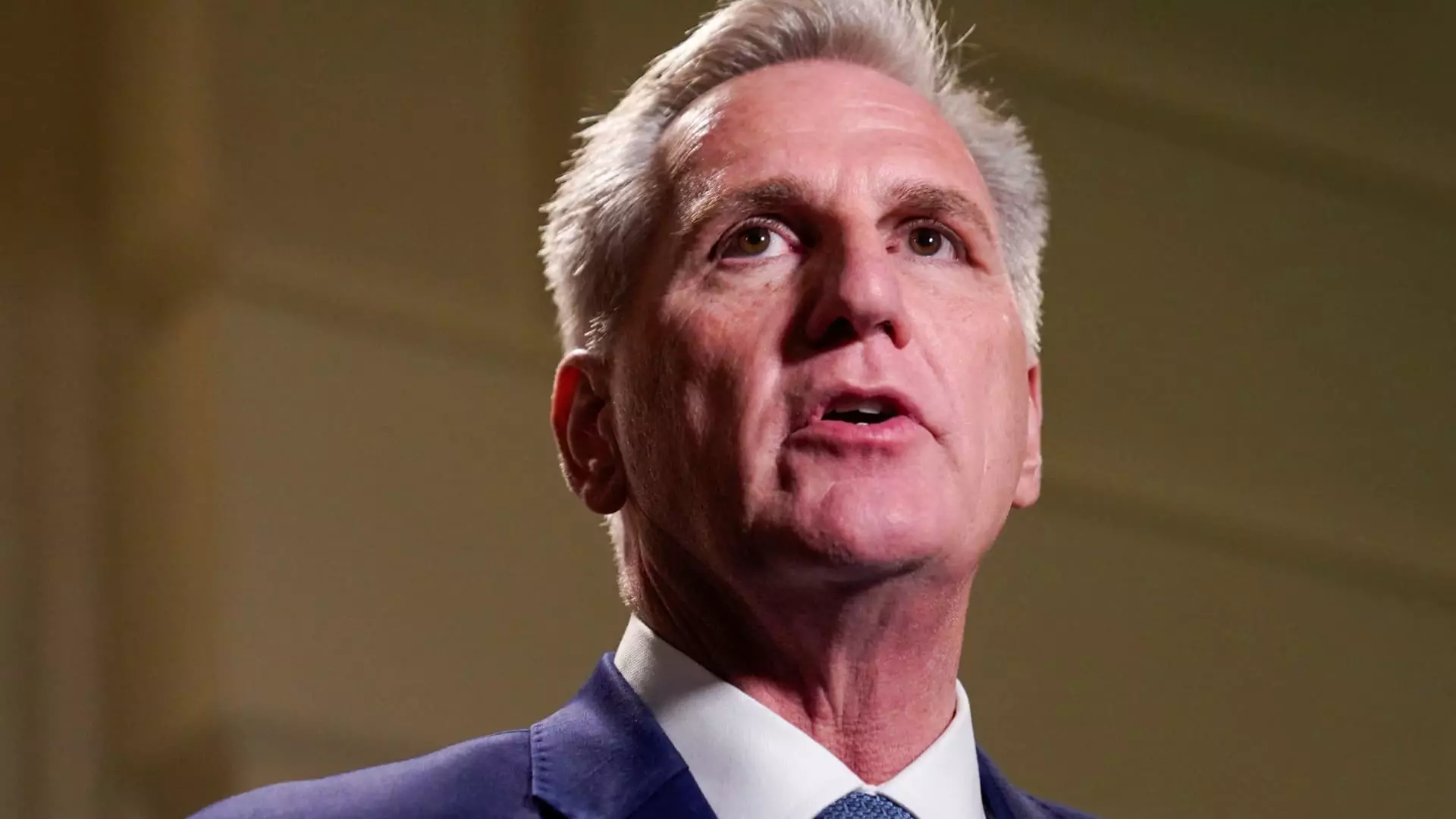The Republican Party finds itself once again at square one in the saga of electing a speaker of the House. With the withdrawal of the leading candidate, Rep. Jim Jordan, R-Ohio, the party was left scrambling to regroup and find a new nominee. This unexpected turn of events has culminated in an embarrassing situation not only for the Republican Party but for the entire nation. Former speaker Kevin McCarthy, R-Ca., lamented this predicament on NBC’s “Meet the Press,” highlighting the detrimental impact of such internal strife on the party and the country as a whole.
Following Rep. Jordan’s departure, Republican representatives have rushed to announce their consideration for the race. The frontrunner appears to be Majority Whip Tom Emmer, who has garnered significant support within the party. At present, a total of nine Republican representatives have committed to campaigning for the coveted position of speaker. Among them are noteworthy names such as Rep. Kevin Hern from Oklahoma, Rep. Jack Bergman from Michigan, Rep. Gary Palmer from Alabama, Rep. Mike Johnson from Louisiana, Rep. Byron Donalds from Florida, Rep. Pete Sessions from Texas, Rep. Austin Scott from Georgia, and Rep. Dan Meuser from Pennsylvania.
Upon Jordan’s exit, McCarthy promptly nominated Tom Emmer as his preferred choice for the role. McCarthy voiced his confidence in Emmer’s ability to successfully navigate the complexities of passing challenging bills and securing majorities, making him the most suitable candidate to assume the position of speaker. However, many Republicans have refrained from openly endorsing any specific nominee. Rep. Michael Turner from Ohio and Rep. Michael McCaul from Texas admitted to being undecided during interviews on CNN’s “State of the Union.” They both stressed the urgent need to resolve the election promptly to maintain the stable functioning of Congress.
Former Republican Rep. Liz Cheney succinctly articulated the prevailing sentiment concerning the current state of House Republican dysfunction. She noted on CNN’s “State of the Union” that the ongoing stalemate hardly surprises her. The situation has left the House Republicans treading water and failing to make progress. At a time when unity and focus are paramount, their inability to present a unified front poses a severe hindrance to effective governance.
Former House Speaker Newt Gingrich, who brings a wealth of experience from his tenure from 1995 to 1999, expressed his disappointment with the lack of urgency displayed by House Republicans. Gingrich emphatically called for an intensive conference where representatives would remain secluded until they reach a consensus, engaging in deliberate conversations without distractions. His argument revolves around the necessity of ensuring the speaker nominee can gather and retain the majority of votes over the coming months. Moreover, Gingrich expressed his desire to see women like Rep. Elise Stefanik from New York and Rep. Beth Van Duyne from Texas among the candidates, believing their presence could yield a more unifying and effective outcome. Astonishingly, among the nine current candidates, there is not a single woman in the running.
Rep. Michael McCaul, chairman of the House Committee on Foreign Affairs, highlighted the untimeliness of the speaker race deadlock given the pressing global events. McCaul stressed the significance of having a functional House to address critical matters such as the ongoing Israel-Hamas conflict and the war in Ukraine. With no speaker in place, crucial decisions surrounding Israeli aid and condemning militant groups like Hamas become increasingly challenging. McCaul voiced his concern on ABC’s “This Week,” emphasizing the danger in delaying action and the consequences of empowering adversaries through inaction.
In light of the current impasse, Republicans plan to reconvene for further deliberations on potential speaker candidates. The gathering is scheduled for Monday at 6:30 p.m. ET. On Tuesday morning at 9 a.m., they will hold a Republican conference vote, hoping to conclude the process with a floor vote later that day. Acting Speaker Patrick McHenry, R-N.C., offered these insights into the party’s plans for moving forward.
The Republican Party finds itself mired in a state of tumultuous discord as it grapples with the speaker race. The sudden withdrawal of the leading candidate, Rep. Jim Jordan, has left the party in disarray, prompting a multitude of representatives to step up as potential contenders. The lack of consensus and the absence of female candidates exacerbate the party’s struggle to solidify a path forward. As the nation confronts critical global challenges, the urgency to resolve this standoff intensifies. With crucial decisions looming, the Republican Party must urgently unite to present a cohesive front that can navigate the torrid waters of governance.


Leave a Reply